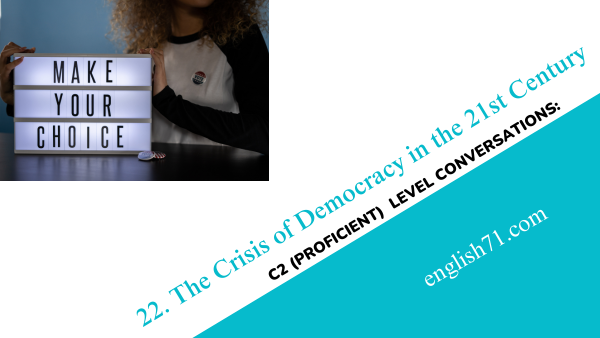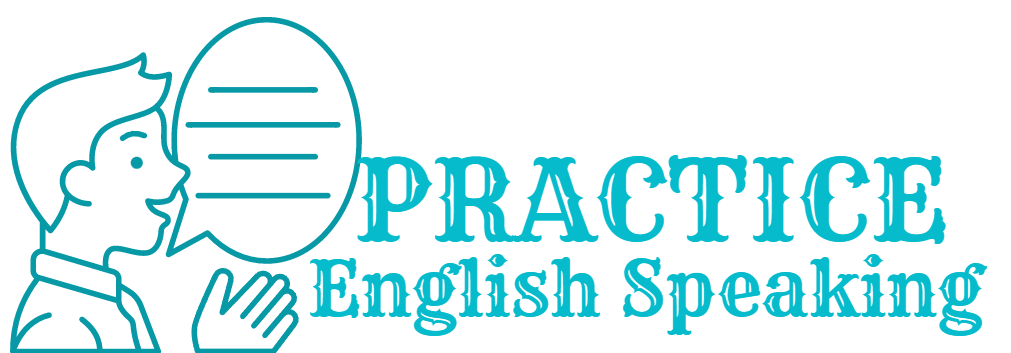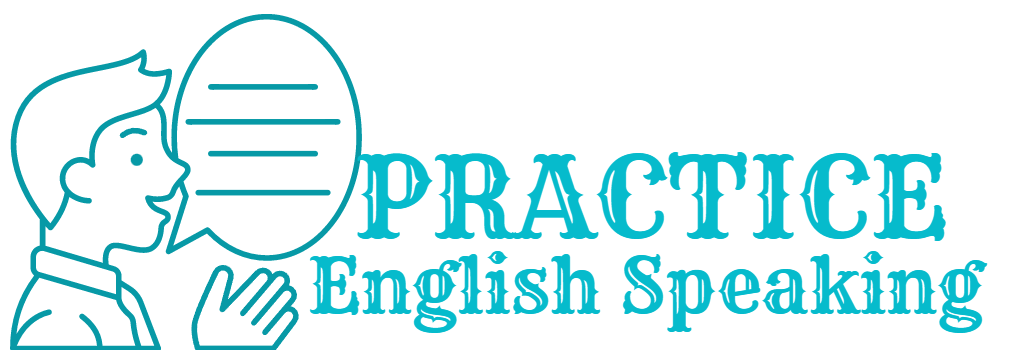C2 (Proficient) level Conversations: (22)The Crisis of Democracy in the 21st Century

Ranbir: Hey Sana, have you been keeping up with the news lately?
Sana: Yes, Ranbir. I’ve noticed there’s been a lot of talk about the crisis of democracy in the 21st century. It seems like there are so many challenges facing democratic systems worldwide.
Ranbir: Absolutely. It’s concerning to see the erosion of democratic norms and values in many countries. The rise of authoritarian leaders, the spread of misinformation, and the decline in political participation are just some of the issues contributing to this crisis.
Sana: I agree. And it’s not just happening in one region; it’s a global phenomenon. The question is, what can be done to address these challenges and strengthen democratic institutions?
Ranbir: That’s a complex question with no easy answers. I think one key aspect is promoting civic education and engagement from an early age. Ensuring that citizens understand their rights and responsibilities is essential for a functioning democracy.
Sana: Definitely. Education plays a crucial role in fostering critical thinking and informed decision-making among the populace. But there’s also a need for reforms to make democratic processes more transparent and accountable.
Ranbir: Transparency is vital. Citizens need to have trust in their institutions and leaders. That means reducing corruption and increasing government accountability through measures like open data initiatives and whistleblower protections.
Sana: Agreed. Another challenge we face is the influence of money in politics. Wealthy individuals and special interest groups often wield disproportionate power, undermining the democratic principle of equal representation.
Ranbir: Absolutely. Campaign finance reform is necessary to level the playing field and prevent the undue influence of money on policy decisions. We also need to strengthen laws protecting the integrity of elections and combatting disinformation campaigns.
Sana: It’s clear that addressing the crisis of democracy requires a multi-faceted approach involving government action, civil society engagement, and individual responsibility. But I believe that with concerted effort and collective will, we can overcome these challenges and build a more resilient and inclusive democracy for the 21st century.
Ranbir: Well said, Sana. It won’t be easy, but it’s certainly worth striving for. Our generation has a responsibility to safeguard democratic values and ensure a better future for generations to come.
Sana: Absolutely, Ranbir. Let’s stay informed and engaged so that we can be part of the solution to the crisis of democracy.



Summary:
Ranbir and Sana engage in a thoughtful discussion about the crisis of democracy in the 21st century. They highlight various challenges such as the rise of authoritarianism, the spread of misinformation, and the influence of money in politics. Ranbir emphasizes the importance of civic education and transparency in strengthening democratic institutions, while Sana emphasizes the need for reforms to combat corruption and ensure equal representation. Both agree on the necessity of collective action to address these challenges and uphold democratic values. Overall, their conversation reflects a nuanced understanding of the complexities surrounding the crisis of democracy and the importance of proactive engagement to address it.

